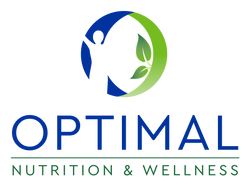OXYTOCIN AND ITS LITTLE KNOWN BENEFITS
Often I find myself marveling over the complexity of the human body. It’s not just the numerous organs, hormones, enzymes, nerves, tissues, blood vessels, vitamins, minerals, lymphatics, etc., but the fact that each one performs so many different functions or is involved in multiple processes, all in beautiful concert with one another. Oxytocin is one such hormone with such a wide variety of involvement in the body. It is produced in numerous places throughout our body including the uterus, ovaries, testicles, heart, placenta, pituitary, retina, pineal gland, adrenals, pancreas, prostate, and hypothalamus.
Oxytocin, the “cuddle hormone” which we discussed in the last blog (click here to read), has for years been relegated only to the OBGYN’s office for its relationship to childbirth and breastfeeding. Ignored by doctors and researchers alike for years, its other amazing abilities have only recently been studied, and to date there is still no medical description of a deficiency in oxytocin. Beyond its sexual benefits as previously discussed, oxytocin has come on the scene with several newly found roles. Below we will discuss several of the more researched benefits of oxytocin.
Our opioid addiction problem in the United States has made headlines over the past couple of years, and doctors are heeding the call to limit or stop prescribing these drugs. But what alternatives do we have for pain relief? Currently oxytocin is emerging as a strong contender to aid in pain relief, especially for migraines and chronic conditions such as fibromyalgia, IBS, and low back pain. Oxytocin, produced in part in the hypothalamus, is released into both our peripheral circulation as well as into the central nervous system, including into the spinal fluid. It also has the ability to cross the blood brain barrier. Oxytocin receptors are located in the brain, throughout the spinal cord and throughout the whole intestine. Furthermore, it has been found that oxytocin binds to both opioid receptors in the brain and cannabinoid receptors, further enhancing its ability to bring pain relief. Before his retirement, Dr. Forest Tennent, an internist and pain specialist, found prescribing appropriate amounts of oxytocin to be effective for pain relief for many, but not all of his patients. For those who find that oxytocin relieves their pain, it is a safe alternative with few mild adverse effects and most of those are only transient. For more information, check out this PubMed article. https://www.ncbi.nlm.nih.gov/pmc/articles/PMC4276444/
Not only can oxytocin relieve physical pain, but it can aid in calming our sympathetic nervous system by modulating our cortisol levels. Hence, it helps to bring our bodies back to normal from a fight or flight response. Oxytocin also very specifically targets the amygdala in our brain. The amygdala is responsible for our perception of emotions such as fear, anger, and sadness and is responsible for expressions of aggression. When anger and fear arise, higher levels of oxytocin bring balance to the amygdala and lower the aggression response. The amygdala is also involved in the storing of memories and the emotions we attach to those memories. Higher levels of oxytocin help us to retrieve these memories with the emotions we felt. Olfactory memory is even heightened by strong levels of oxytocin. This explains why mothers get that warm, fuzzy feeling when they see and smell a newborn baby. They can’t help it….it is literally a biological response from oxytocin.
Oxytocin, known also as the “bonding hormone” and the “trust hormone” has been noted to be of benefit to some who are on the autism spectrum. Interestingly, Dr. Jorge Flechas noted in his studies on oxytocin and autism that autistic children lack an enzyme to convert oxytocin to a usable form. Therefore, prescribed oxytocin for these children may help them become more sociable and responsive.
Oxytocin also plays a role in mood stability, aiding in the treatment of schizophrenia, lowering blood pressure in women as a vasodilator, increasing milk supply in lactating women, mental alertness, neuroplasticity of the brain, appetite reduction, inducing labor, pain control during labor, and stopping hemorrhaging after delivery.
According to the 2nd edition of the Hormone Handbook by Dr. Thierry Hertoghe one may experience low oxytocin levels from chronic stress, a major trauma such as a car accident, death of a loved one, divorce and surgeries affecting the hypothalamic pituitary area. Below are a few symptoms he believes that can point to a deficiency:
- Less social involvement/withdrawn
- Greater desire for solitude/few new friendships
- Marriage less happy/divorced/never married
- Excess pain sensitivity
- Unkind/unpleasant personality/unattractive personality
- Less satisfying sex/few or no ejaculations/few orgasms
- Joyless/unhappy attitude/futile worrying/excessive fear
- Dry eyes
- Tense Muscles
Oxytocin is known to be lower in people suffering with:
- Depression
- Schizophrenia
- Autism
- Fibromyalgia
- MS
- Parkinson’s
- Low estrogen
- Prader Willi Syndrome
- Low thyroid
- Chronic opioid use
- Chronic stress
It can also be lower in women with breast implants or those that have had breast surgeries since both can affect key nerves associated with oxytocin production. Estrogen drives the production of oxytocin which can cause post-menopausal women to experience a decline in oxytocin levels when estrogen levels decrease after menopause.
Dr. Hertoghe also noted in The Hormone Handbook that people low in oxytocin can be susceptible to:
- Cardiovascular disease
- Lower fertility
- Poor wound healing
- Depression
- Anxiety disorders
- Sexual impotence or frigidity
- Autism
- Schizophrenia
Again, if you find yourself recognizing some of these symptoms in yourself, call Dr. Matalone’s office and set up an appointment to have your hormone levels evaluated. Oxytocin is just one hormone that uniquely affects so many areas, but it plays in concert with many others. An overall balanced hormone system brings a strong sense of vitality and well-being and overall good health that we are meant to enjoy.






